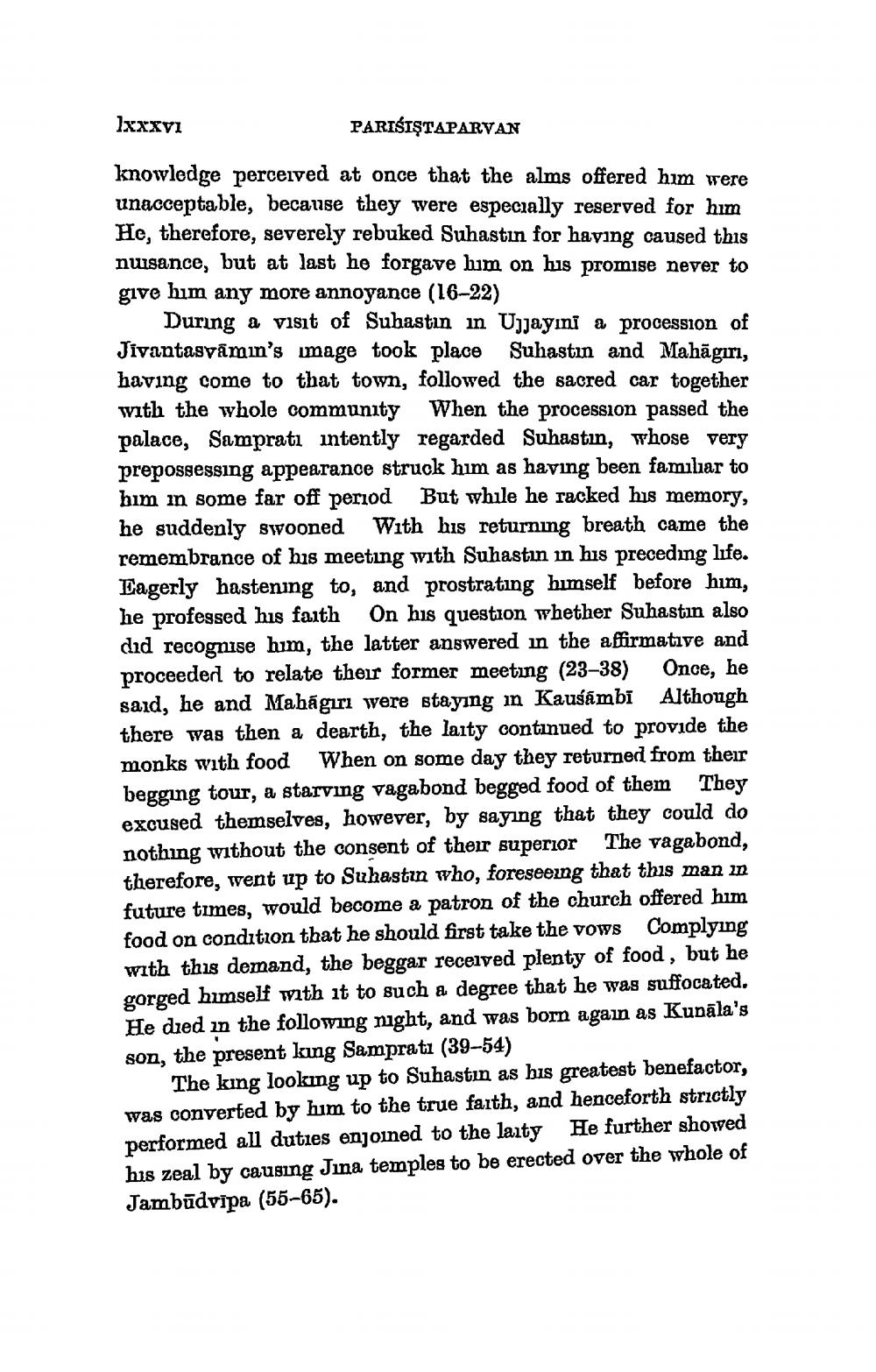________________
lxxxvI
PARIŠIŞTAPARVAN
knowledge perceived at once that the alms offered him were unacceptable, because they were especially reserved for him He, therefore, severely rebuked Suhastın for having caused this nuisance, but at last he forgave him on his promise never to give him any more annoyance (16-22)
During a visit of Subastın in Ujjayini a procession of Jivantasyāmin's image took place Suhastin and Mahāgırı, having come to that town, followed the sacred car together with the whole community When the procession passed the palace, Samprati intently regarded Suhastin, whose very prepossessing appearance struck him as having been familiar to him in some far off period But while he racked his memory, he suddenly swooned With his returning breath came the remembrance of his meeting with Suhastın in his preceding life. Eagerly hastening to, and prostrating himself before him, he professed his faith On his question whether Suhastın also did recognise him, the latter answered in the affirmative and proceeded to relate their former meeting (23–38) Once, he said, he and Mahāgırı were staying in Kaušámbi Although there was then a dearth, the laity continued to provide the monks with food When on some day they returned from their begging tour, a starving vagabond begged food of them They excused themselves, however, by saying that they could do nothing without the consent of their superior The vagabond, therefore, went up to Suhastun who, foreseeing that this man in future times, would become a patron of the church offered him food on condition that he should first take the vows Complying with this demand, the beggar received plenty of food, but he gorged himself with it to such a degree that he was suffocated. He died in the following night, and was born again as Kunāla's son, the present kung Samprati (39-54)
The king looking up to Suhastin as his greatest benefactor, was converted by him to the true faith, and henceforth strictly performed all duties enjoined to the laity He further showed his zeal by causing Jina temples to be erected over the whole of Jambūdvīpa (55-65).




